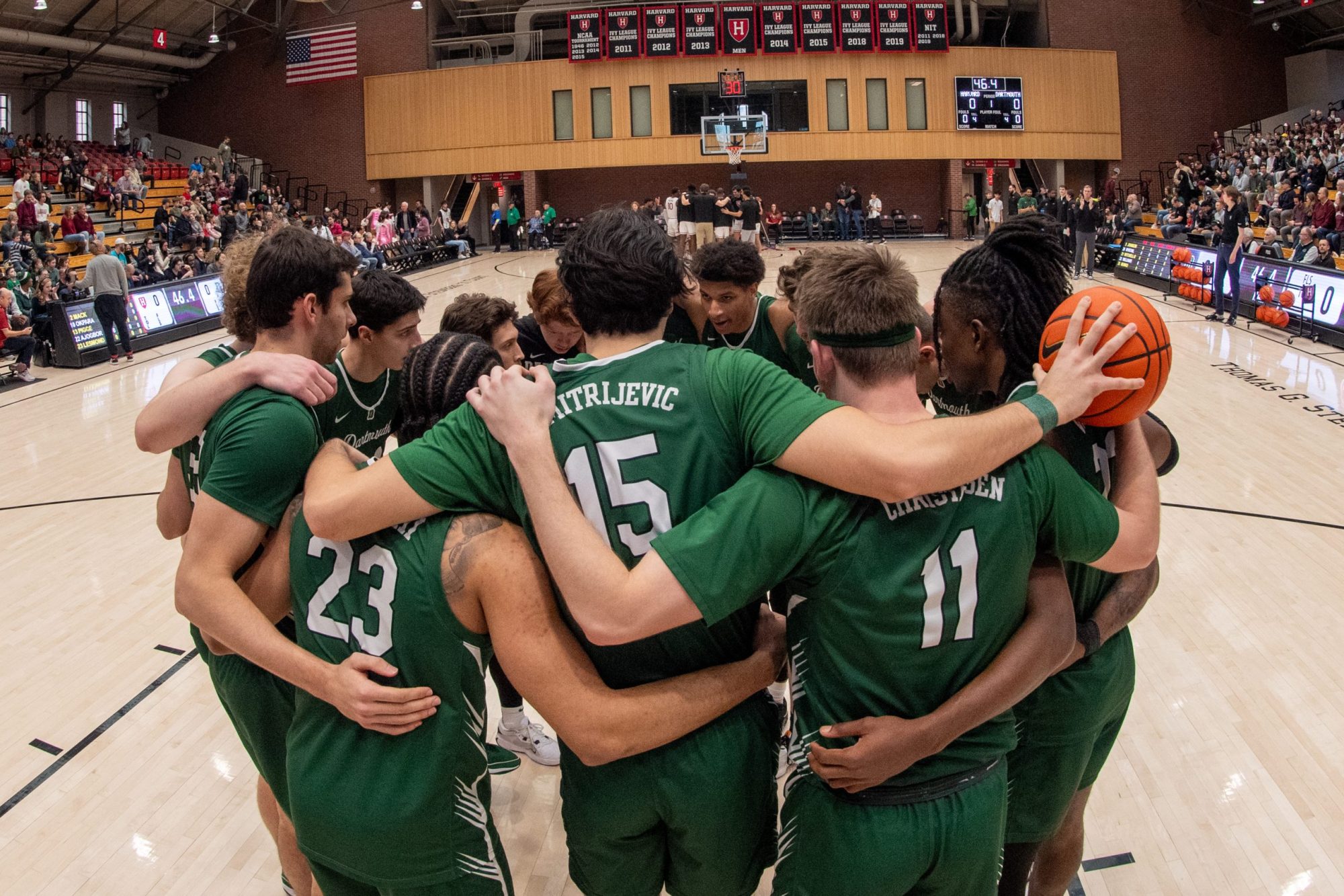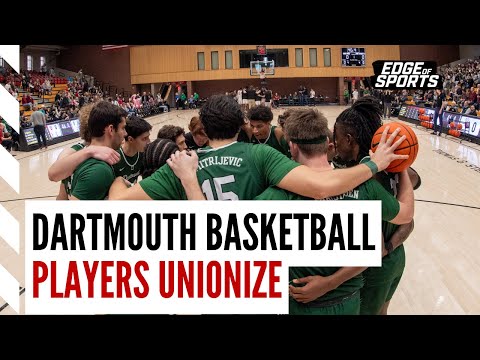Dartmouth basketball players have made history by becoming the first college sports team in the US to unionize, shifting the playing field for other college athletes struggling for collective bargaining rights around the country. Dave Zirin examines this major breakthrough at the intersection of sports and the labor struggle in this edition of “Choice Words.”
Studio Production: David Hebden
Post-Production: Taylor Hebden
Audio Post-Production: David Hebden
Opening Sequence: Cameron Granadino
Music by: Eze Jackson & Carlos Guillen
Transcript
Dave Zirin: And now some choice words. Okay, this is big news. The basketball team at Dartmouth has organized itself into a labor union after voting 13 to 2 to join SEIU Local 560. This is the men’s team. Now in the process, they are educating the seething NCAA that the future of university-athlete relations lies in collective bargaining. The current economy of college sports is, to put it mildly, discombobulated. An unregulated system where players can profit from their name, image, and likeness has upended the revenue-producing sports of football and basketball.
The transfer portal that grants the freedom of so-called student-athletes to switch teams has also created a cultural sea change. In short, shifting power is taking place away from autocratic coaches and athletic directors to the players themselves. And yet there still is that final frontier: unionization and collective bargaining, both of which could build a new and better framework for college sports. You see, here’s the issue; While name, image, and likeness money benefits the famous few and the transfer portal has been a vital reform, both skirt the question of whether these student-athletes are campus workers.
As campus workers, they would, in theory, be free to organize into a union and demand collective bargaining, not just over compensation but other issues that affect so-called student-athletes like medical care, travel demands, and the academic freedom to choose classes without athletic department interference. And this is a smattering of the issues that would surely be brought to the table. Of course, the NCAA and many head coaches have no desire to sit across that table from the players.
They decry unionization as an affront to everything good and holy about amateur sports. But the fortress of anti-unionism that is the NCAA has been breached by the Dartmouth players, and the sooner the NCAA recognizes that this breach cannot be closed, the better for all parties. The NCAA has a choice: They can finally see the benefits of collective bargaining, or they can continue in their fierce belief that sham amateurism will have to be pried from their cold, dead hands. It certainly feels like they’re going the latter root but this is a battle for which the players are ready.
Dartmouth teammates, Cade Haskins and Romeo Myrthil, told The Associated Press, “We stuck together all season and won this election. It is self-evident that we, as students, can also be both campus workers and union members. Dartmouth seems to be stuck in the past. It’s time for the age of amateurism to end.” We need to cheer this victory but we also need caution. It’s not merely the NCAA standing athwart history and saying no to these athletes. Dartmouth University is making its objections very clear as well.
According to SEIU, the administration told players that unionizing could get them booted from the NCAA or even from the Ivy League, heaven forfend. Let’s be clear, this is fear-mongering and we should remember that NCAA scare tactics about a lawless unionized future will indeed be a hurdle, but we would also do well to remember that the NCAA and their political lobbyists have been braying about progressive reforms killing college sports for at least 50 years. First, it was Title IX: The 1972 law providing women with equal access to, among other venues, athletic teams.
That was what was going to kill college sports. Then, it was players being able to opt out of scholarships after signing letters of intent. More recently, it was NIL and the transfer portal bringing godlessness to the land. Yet, with each reform, the profits grow and the popularity increases. So much so that Iowa hoopster Caitlin Clark, the NCAA’s biggest star since Tim Tebow, was tempted with a mammoth amount of NIL money to stay at Iowa University for a fifth year. Expect more of that and expect the college game to be strengthened as a result, with players staying longer and fan interest growing.
While succumbing to collective bargaining would be in the NCAA’s long-term interests, rather than flushing money on lobbyist luncheons and losing lawyers, they’ll fight unionization until the bitter end. This is clearly not about money for them. It’s about power. It’s about anti-labor attitudes at the top of the sport and in Congress. While the NCAA splinters, the players at Dartmouth are finding a new community. Caoimhín O’Donnell, the national spokesperson for SEIU, described the following scene.
He said “At the last game, security workers, custodians, people who worked for the library, were all cheering really loud because we consider the team part of Local 560 now. In the labor movement, we say siblings – Sisters and brothers – Those were our brothers playing ball. It was really nice to see these union members excited. There was a real sense of what the team had done, what the Local had done, and what the members have done.”
For Edge of Sports, I’m Dave Zirin.



